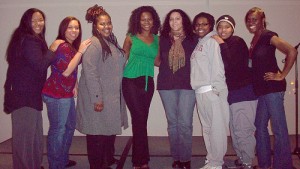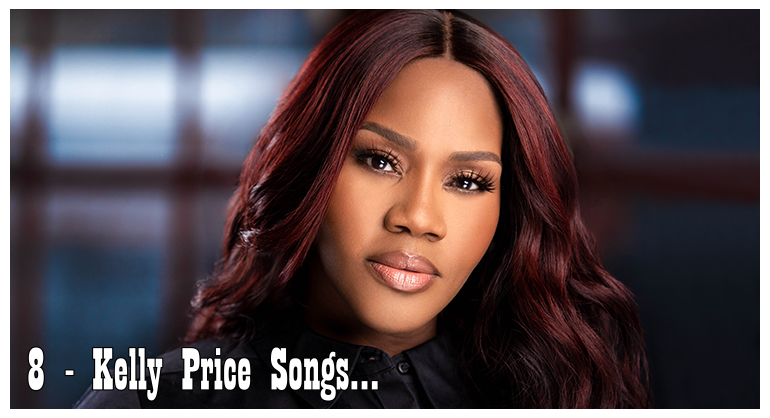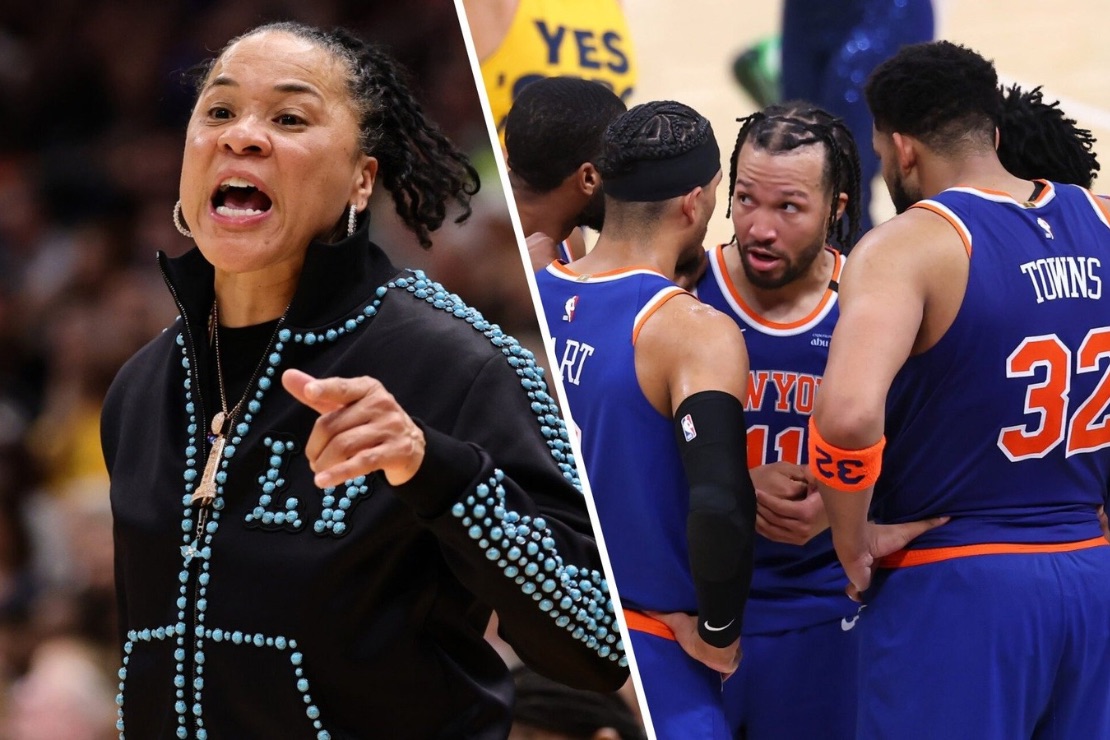(ThyBlackMan.com) My Dear Sisters,
Over the past week or so I’ve read many tweets, Facebook postings, blog rants, and online petitions in response to Psychology Today’s posting of a ‘scientific’ study – “Why Are Black Women Less Physically Attractive Than Other Women” by Satoshi Kanazawa.
The reaction to Kanazawa’s armchair psychobabble which was accompanied by pretty charts and graphs has been widespread outrage here in the United States and in his home country England, where he holds an academic perch at the London School of Economics.
Some of you have rightfully questioned Kanazawa’s dubious methods. Others have challenged the subjective ratings of physical attractiveness from which he based his conclusions. You’ve asked how Psychology Today,  a not-so-widely read outlet, could have published such an inflammatory piece. And others among you have even called on black men to protect us from such disparaging attacks to our personhood.
a not-so-widely read outlet, could have published such an inflammatory piece. And others among you have even called on black men to protect us from such disparaging attacks to our personhood.
I feel your pain and I understand the intensity of your reaction. But I write this piece to urge my sister to stop wasting time by further questioning the merits of Kanazawa’s study. Certainly there are valid situations where a concerted protest against racial insults is warranted. But this latest example of or racist nonsense is not one of them.
When I read Kanazawa’s piece I shook my head and laughed at it. Now ladies, I don’t want you to think that I’m totally anesthetized to racism. As a student of the longue durée of American race relations, I’ve worked to evolve to a different level of consciousness about this issue and I’ve learned to calibrate my responses to it.
Instead of personalizing Kanazawa’s racist drivel, I turned it back onto the author – a provocateur whose tone suggests that he doesn’t really believe that black women are the least attractive of all women. Here is a guy who knows nothing about me or black women writ large. His pseudo-science reflects no real truth about his targets, but it does reveal a great deal about the beholder.
Could it be that Kanazawa, who is Asian, doesn’t like himself? Is his study a defensive response to larger perceptions and stereotypes about the Asian-American male in distress?
Just recently New York Magazine published a lengthy feature titled “Paper Tigers” – Asian-American males perceived as overachievers, depicted as “not good-looking,” “socially inept,” “sexually null,” in need of “behavior assimilation,” “self reform” and “comportment” so they can become winners in the sexual marketplace like their white male counterparts.
Last year the New York Times published a controversial piece on the demographics of interracial and intra-racial marriage. Though the Times piece reported that black women were the less likely to find marriage partners, the demographic most adversely affected by current marriage trends are Asian males. Around 15% of Asian males are unable to marry because more Asian women are marrying white men. Additionally, Asian men tend to be shunned by both white and black women.
My point in bringing up these demographic trends and mainstream media discussions is to show how various kinds of discourses and responses to those discourses intersect. Kanazawa has made a name for himself by disparaging blacks and championing Asian supremacy. That said, we need to always consider the source and learn to situate racist expressions within the context of their production.
The next time you click on a story like this first ask: What does this say about the person who created it? This is a good exercise that will help prevent us from unzipping ourselves and going insane.
Studying black history has helped me learn self-protection and armament. But it has also taught me about the various practical mischievous functions – political, economic and psychological – of racism.
I have come to learn that it must be difficult for race supremacists to get up every morning and have to live up to the myths about their superiority. These folks are part of a culture of people that is defined by what it is not rather than what it really is. The only way they give themselves any real meaning is by disparaging “the other” – their imagined opposite.
As our sister Francess Cress Welsing explained, any neurotic drive for racial superiority is based on a “deep and pervading sense of inadequacy and inferiority.” I feel sorry for people like that.
I understand how people who have suffered a long history of oppression continue to navigate the world with a lasting sense of stigmatization etched into their psyche. But I get dismayed when black women continually obsess over what others (who don’t like themselves) have to say about us. Some of us have become addicted to, and have even created an industry out of giving power and relevance to those who slight us.
And yes, sisters, sometimes we further perpetuate our denial about how we feel about ourselves. It’s easier for us to look at the enemy on the outside than do the hard work of focusing on the beasts within – our own self-hatred and feelings of inferiority imposed by others and even ourselves.
Thanks to social media and all the time and energy we put into responding to Mr. Kanazawa, we have helped him and Psychology Today create a buzz, increase hits to their website and draw attention to their brand. And though students at the London School of Economics have called for his removal, I doubt that Kanazawa will be the least hit hurt by the controversy.
Ladies, we’ve got to stop swallowing other people’s poison and then waiting for them to die. We need to learn how to calibrate our responses to racist expressions, behaviors and practices. And we need to set standards that prioritize what we make an emergency. We have other urgent matters to attend to – violence within black communities, the alarming numbers of black men and boys in prisons, educational disparities, healthcare and jobs, putting ourselves last to take care of everybody else.
Sisters, we ought to take cues from our President and First Lady. They have been subjected to vitriol and name calling and yet we have yet to hear them respond to any of it. Why? Perhaps because the Obamas know that what they think of and do to themselves is more important than what others say and think about them.
Now that’s real empowerment and liberation from racism.
Written By Stacey Patton
Via; http://www.thedefendersonline.com/

















I love how you attack all Asian men because one Japanese man in the UK wrote that ‘Black women are unattractive’ ignoring that that same Japanese man has made other studies disparaging Asians – Asians are uncreative, it was okay to drop nuclear bombs on Japan, Whites are better than Asians, etc etc etc … It was best to ignore him but once his phony study (which you correctly stated has been debunked and uses faulty information) went ‘viral’, you couldnt escape it. However please do some research and get your facts right if you are want to write about race/interracial marriage concerning Asians.
FACT #1) Asian men have the highest marriages rates in the US so I dont know where that 15% you stated in your article comes from. By age 40, 8% of Asian men have never been married as compared to 13% for White men never married or 25% for Black men never married. Just because more Asian women are marrying White men, it doesnt Asian men arent marrying other Asian women.
Source : US Census
http://www.census.gov/population/socdemo/marital-hist/p70-97/tab01.pdf
FACT #2) Regarding that white women ‘shun’ Asian men, Asian men in the US have almost twice the interracial marriage rates to White women than Black man to White women in the US. And I said rates (per capita or percentage-wise) not total since Asians are a little under 5 percent of the US population. From wikipedia :
Source : http://en.wikipedia.org/wiki/Interracial_marriage_in_the_United_States
A) Black Husband/White Wife = 319,000
B) Asian Husband/White Wife = 219,000
Since Asians are 5% of the US population and Blacks are 13% (you can do the math yourself), the average Asian male in the US is almost 2x more likely to be married to a White women than the average Black male is to be married to a White women.
FACT #3) More than half of the US Asian Population (i dont know the exact breakdown but I guess it is about 65% immigrant/35% born in the US) are 1st generation immigrants. Most of these immigrant Asians (men) have English as a second language, are culturally ‘Asian’, are typically older, immigrated to the US already married, etc. And when you isolate US-born Asian men only, meaning those who can speak English fluently and raised in American culture (you can find the sources for the below at the bottom of the Pew Research study) :
A) Over 41% US-Born (Native) Asian men married someone of a different race/ethnicity in 2008
B) From 1980 to 2008, the interracial marriage rates for US-Born (Native) Asian men have hovered around 40 percent
C) Chart : http://i51.tinypic.com/2edpao4.jpg
Source : US Census/Pew Research
http://pewsocialtrends.org/assets/pdf/755-marrying-out.pdf
FACT #4) In addition, Asian men in the US have the exact same marriage patterns as Hispanic Men in the US. Low intermarriage for immigrants and highe intermarriage for those born in the US.
Chart : http://i52.tinypic.com/2en9rw7.jpg
Source : US Census/Pew Research
http://pewsocialtrends.org/assets/pdf/755-marrying-out.pdf
So everything single thing you used to attack Asian men in the US in your article is factually incorrect. It is based on your own stereotypes/biases and not on any reality. Even your reference to Wesley Yang NY Magazine article misses the points he was making. Disappointed …
Darnell J